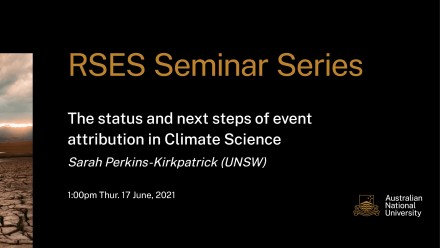The status and next steps of event attribution in Climate Science
Extreme event attribution is a field of climate science rapidly growing in popularity, despite being relatively new. In event attribution studies, the anthropogenic climate signal of an observed extreme event is determined by comparing the frequency and/or magnitude of the event in factual and counterfactual climates. This process is heavily reliant on physical climate models and their ability to simulate events like the one of interest, as well as the underpinning physical mechanisms. Whilst an anthropogenic signal is readily found for heat extremes, it is not always the case for other extreme events which are more prone to influences of variability, and/or are not modelled as accurately. Moreover, different approaches and/or physical models employed for attribution may yield different results, which, although scientifically plausible, poses significant communication challenges. Recently, attributing the impacts of extremes to climate change has also been explored, however there are nuances in the methodology which hinders a direct application of the attribution of the extreme event directly to its impacts. Whilst event attribution is useful and powerful, such challenges cannot be ignored. This talk will address and discuss these challenges and propose ways they may be overcome in the future.








